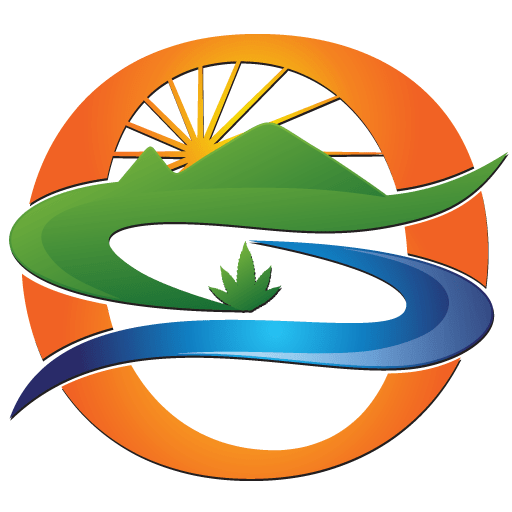Medical Cannabis in Washington State – Understanding DOH-Compliant Cannabis
The history of medical cannabis here in Washington is a long and complicated one. Before the passage and implementation of Initiative 502, which created the framework for the country’s first regulated commercialized cannabis market, Washington State had a large medical cannabis market with thousands of dispensaries and a large patient community. The implementation of I-502 in 2014 left much of the medical cannabis community without access to the products they had used for years as many legacy dispensaries were not able to secure retail store licenses and newly licensed producers and processors focused on the new recreational consumer. However, there is still a medical cannabis program overseen by the Washington State Department of Health (DOH) which was established under the Cannabis Patient Protection Act (SB 5052) of 2015. This act created definitions for qualifying medical conditions, established a system for registering patients, created a license for medical cannabis consultants, and set higher testing standards for products to be considered DOH-compliant.
What Does DOH-compliant Mean?
For a cannabis product to earn the DOH-compliant label, it must undergo testing that surpasses the state’s standards for normal products. The Department of Health has established stringent regulations for cannabis producers, processors, and retail stores participating in the medical program. DOH-compliant products undergo additional testing that includes screening for extra pesticides and heavy metals, ensuring that the products adhere to elevated standards of cleanliness and accurate labeling. Any failure of these tests results in the destruction of the product, creating a huge liability for a company should they fail the test. Companies incur higher costs for these tests as well, with only two companies in the state presently opting to shoulder these expenses and risks to create DOH-compliant products. Retail stores have the option to apply for a medical endorsement, granting them the ability to offer discounts to patients and sell hemp products, among other privileges. However, this endorsement also entails certain requirements for the store, such as stocking DOH-compliant products and providing patients with access to a certified medical cannabis consultant.
DOH-compliant products are available for purchase by anyone, not solely registered patients. The elevated testing standards associated with these products attract a broad consumer base, as many perceive them to be of superior quality and effectiveness.
How To Identify These Products:
The state has developed three images that companies can place on their packages to indicate their products have been tested to the higher DOH standards and are in fact DOH-compliant. The three logos are;

General Use – This is the most common logo you will see and indicates that the product has passed the DOH testing standards, and is available to everyone regardless of patient status.
High CBD – This logo indicates that the product has passed the DOH testing standards, contains at least 20 times more CBD than THC, and is available to everyone regardless of patient status.
High THC – This logo indicates that the product has passed the DOH testing standards, is only found on higher potency edibles, and is only available to registered medical patients.
Medical Cannabis Consultants:
Individuals can become DOH-certified medical cannabis consultants by taking a state-sanctioned course and passing a quiz. The license must be renewed every year and requires annual continuing education hours. Certified consultants play a crucial role in the DOH program, entering patients into the database, printing medical cards, and offering information on suitable products and treatment plans for specific conditions.
Qualifying Conditions and Changes:
Individuals seeking a medical card must undergo a doctor’s visit and meet one or more qualifying conditions specified by the state. The number of qualifying conditions has become more restricted with the enactment of I502 and the Cannabis Patient Protection Act. Additionally, applicants must register in a state-operated database. Once registered, these patients are entitled to a 10% tax reduction and gain access to higher potency High-THC compliant edibles and High-CBD compliant products. However, the time and cost involved in obtaining the card and registering for a relatively modest tax break often outweigh the benefits. Consequently, Washington has the lowest number of registered patients compared to states with similar medical cannabis programs.
Fortunately, there has been recent state support to make positive changes to the program with the goal of increasing the number of registered patients. A notable proposal is the substantial increase in the tax exemption to 37%. Moreover, public comments are being solicited on all rules related to the program, and DOH staff actively seek the support of patients and industry stakeholders—a level of engagement that was lacking when the initial law was passed.
The Leading DOH-Compliant Brand:
Skagit Organics stands out as the premier DOH-compliant brand in Washington, showcasing a steadfast dedication to testing and quality throughout their product range. Notably, their commitment shines through in the production of RSO (Rick Simpson Oil), a highly coveted concentrate among patients, where they hold the position as the leading provider of DOH-compliant RSO in Washington. Their ongoing dedication to the medical community is evident in the diverse range of DOH-compliant products with their entire product line of flower, skincare items, vape cartridges, and edibles all subjected to rigorous testing of the elevated DOH standards.
Skagit Organics also actively engages in advocating for positive, patient-centered enhancements to the DOH program, holding a leadership position within The Cannabis Alliance, Washington’s largest and most influential cannabis trade group. Within The Cannabis Alliance, there is a patient committee that serves as a platform for patients and medical cannabis advocates to suggest improvements and recommendations for rule and regulation changes they believe would benefit the medical community. Skagit Organics participates in this committee, leveraging its industry influence to convey the concerns and suggested solutions of patients to lawmakers and cannabis regulators.
Other Players in the Market:
Fairwinds Cannabis and TrailBlazin’ Productions are currently the only other brands conducting this rigorous testing on their products. Washington Bud Co. is the other notable company to mention. As of the time of this blog post they are not officially participating in the DOH program but plan to participate soon, they are recognized for their long history in the medical cannabis market, providing clean and quality flower, oils, and capsules.
If you would like to learn more please visit these websites;
-
Official Department of Health Cannabis Portal – State Website
-
Medical Cannabis Washington – Patient Focused Information
-
Skagit Wellness – Connect with licensed cannabis consultants
-
Skagit Organics – Washinton’s leading provider of DOH-Compliant products
-
The Cannabis Alliance – Washington’s largest cannabis trade group


